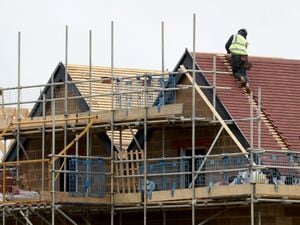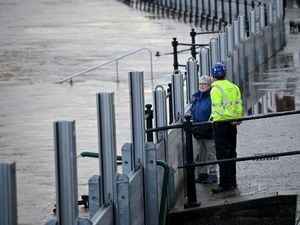Shropshire MP welcomes proposals on drainage rules for new developments
A Shropshire MP has welcomed Government proposals to help alleviate pressures on drainage and sewerage systems across the country from new building developments.

The move is expected to help reduce the risk of flooding and pollution and was welcomed by Ludlow MP Philip Dunne.
As chairman of the Environmental Audit Committee, he said: "Our drains and sewers are spilling under significant pressure, exacerbated by new housing developments having the automatic right to connect to the sewerage system.
"It is absolutely right that the Government leaves no stone unturned to address the major and complex challenge of easing pressure on the system."
He added: "Developers must not simply have the right to connect to overloaded sewerage systems and not contribute to improvements."
The move by the Government is expected to reduce flood risk and clean-up rivers across England and reduce storm over-flows and pollution caused by surface run-off.
New developments and the environment will benefit from a reduced risk of flooding and pollution thanks to a new approach to drainage.
The recommendation to make sustainable drainage systems mandatory to new developments in England is the result of the Government’s review which was published today.
Developments can inadvertently add to surface and sewer flood risk by covering permeable surfaces like grassland and soil that would otherwise assist in dealing with heavy rainfall.
The new approach to drainage is aimed at ensuring sustainable drainage systems are designed to reduce the impact of rainfall on new developments by using features such as soakaways, grassed areas, permeable surfaces and wetlands.
A public consultation is expected to be launched later this year to help shape the new approach which is expected to come into operation in 2024.
Environment minister Rebecca Pow said: “Our traditional drainage systems are under increasing pressure from the effects of climate change, urbanisation and a growing population.
“The benefits of sustainable drainage systems are many, from mitigating flood risk by catching and storing surplus water and reducing storm overflow discharges, to enhancing local nature in the heart of our developments and helping with harvesting valuable rain water.
“Taking a more consistent and effective approach to sustainable drainage systems will improve the resilience of our drainage and sewer infrastructure, while reaping these broader benefits.”




